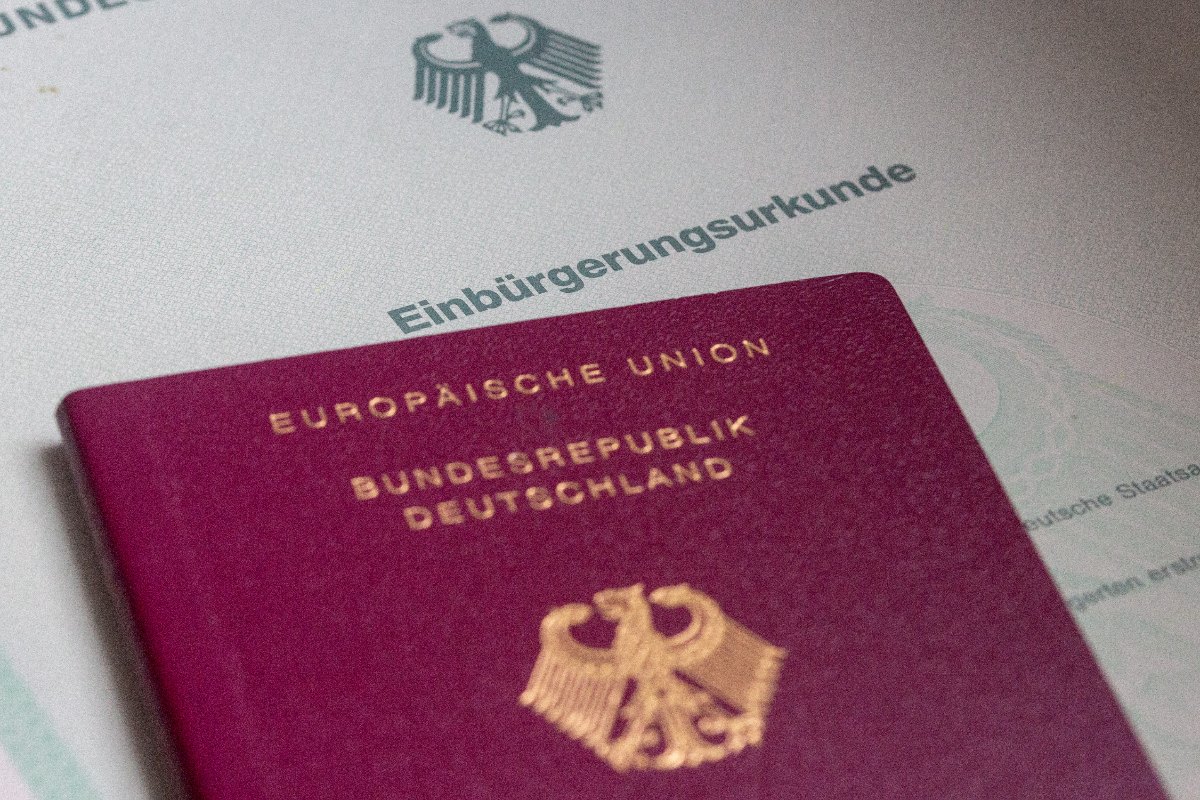Despite recent changes to Germany’s citizenship law, conservative politicians are continuing to target it. Are we likely to see dual citizenship rights for foreigners reversed? We put the question to lawmakers in the CDU and SPD to find out.
It’s just a couple of weeks since Germany axed the fast-track path to citizenship, which allowed well-integrated residents to become German after three years.
But talk of toughening rules around naturalising hasn’t calmed down in the German political landscape.
In a recent interview with Bild newspaper, member of the Bundestag Stephan Mayer, of the centre-right CSU, said Germany should change the law to make it easier to strip citizenship from some criminals.
“Violent criminals, enemies of the constitution, antisemites and German-haters must have their citizenship revoked immediately if they have two passports,” he said.
“It cannot be that we give people the privilege of citizenship and that they afterwards trample on our values and us,” he said.
READ ALSO: Conservatives are taking aim at Germany’s dual citizenship rules, again
Mayer then targeted dual citizenship in general. He said: “As a country, we have to ask ourselves whether we still want general dual citizenship and whether we can still afford it.”
This reflects the general position of the conservatives. Chancellor Friedrich Merz, of the Christian Democratic Union (CDU), has long been against the idea of dual citizenship for all.
In the run up to the snap election in February, Merz said that dual citizenship “creates too many problems in Germany”. He added that dual citizenship “should always remain an exception requiring justification and should not become the permanent rule”.
READ ALSO: Why is dual citizenship still so controversial in Germany?
However, when the Union parties and the centre-left Social Democrats (SPD) formed their coalition government, the only clear commitment on citizenship was to scrap the three-year fast track to naturalisation.
This was viewed as a compromise since the black and red parties have such differing views on citizenship. The SPD was one of the main architects of the 2024 reform of citizenship law, which saw the standard residency requirement reduced from eight years to five years, and the option to hold dual nationality expanded to everyone.

A German citizenship certificate and passport. Photo: picture alliance/dpa | Fernando Gutierrez-Juarez
Will we see further changes to the citizenship law?
With this in mind, The Local reached out to the German government’s Interior Ministry, as well as the CDU and SPD parties, to ask directly whether we can expect more changes to citizenship rules.
The Interior Ministry said it did not comment on politicians’ individual statements but referred us to the coalition agreement. The agreement states: “We will abolish ‘fast-track naturalisation’ after three years. In addition, we will continue with the reform of citizenship law.”
A spokesperson from the ministry confirmed that the three-year track to naturalisation was abolished on October 30th, and that a minimum residence of five years is needed to qualify for German citizenship.
The ministry did not offer further details on what ‘continuing with the reform’ means exactly. But in light of recent comments from lawmakers, it could be regarding plans to change the law to allow the removal of German citizenship from dual nationals who have committed certain crimes.
So far no concrete plans have been put forward and it’s unclear if this move would be legal under Germany’s Basic Law.
READ ALSO: What Germany’s new coalition pact means for foreign residents
A spokesperson for the CDU confirmed the conservative bloc are pushing for this.
“Our aim is to examine expanding the grounds for loss of German citizenship for persons with dual citizenship who have committed multiple serious crimes and thus pose a threat to security in our country,” she told The Local.
The spokesperson added that this was the main topic in the Bild interview with the CSU’s Mayer, “it was not about people who have two passports and have been living peacefully in our country for years”.
“Our Basic Law stipulates that individuals can lose their German citizenship if this is regulated by law and the person concerned does not become stateless as a result. People with dual citizenship would not become stateless even after losing their German passport.”
READ ALSO:
Yet it looks like pursuing more changes to the citizenship law – and talking about the problems of dual nationality – will spark strife in the coalition because the SPD is keen to move on.
Social Democrat Bundestag member Sonja Eichwede stressed that “no further changes are planned” to the nationality law.
“We recently reformed nationality law as a coalition in the German Bundestag, thereby confirming and consolidating dual citizenship,” she told The Local.
Eichwede added that allowing the possibility of dual citizenship for those naturalising “strengthens Germany as a country of immigration”.
She added: “It recognises the achievements and commitment of many citizens who contribute to the success of our country.
“In the global competition for the best minds, we must also give skilled workers the prospect of becoming fully integrated into our society in the foreseeable future.
“We are committed to a modern migration and integration policy. This includes allowing people from a wide variety of backgrounds to enrich our society.”
Another SPD MP, Hakan Demir, recently told The Local that the matter was closed following the compromise to get rid of the three-year path to citizenship.
“Almost all progressive reform components will stay in place: dual citizenship, naturalisation after five years, more flexible language requirements for the guest worker generation,” he said.
Demir said Germany should now focus on speeding up citizenship application waiting times and creating a welcoming atmosphere for people becoming German.
READ ALSO: Which German cities have the longest times for citizenship
Disclaimer : This story is auto aggregated by a computer programme and has not been created or edited by DOWNTHENEWS. Publisher: thelocal.de







